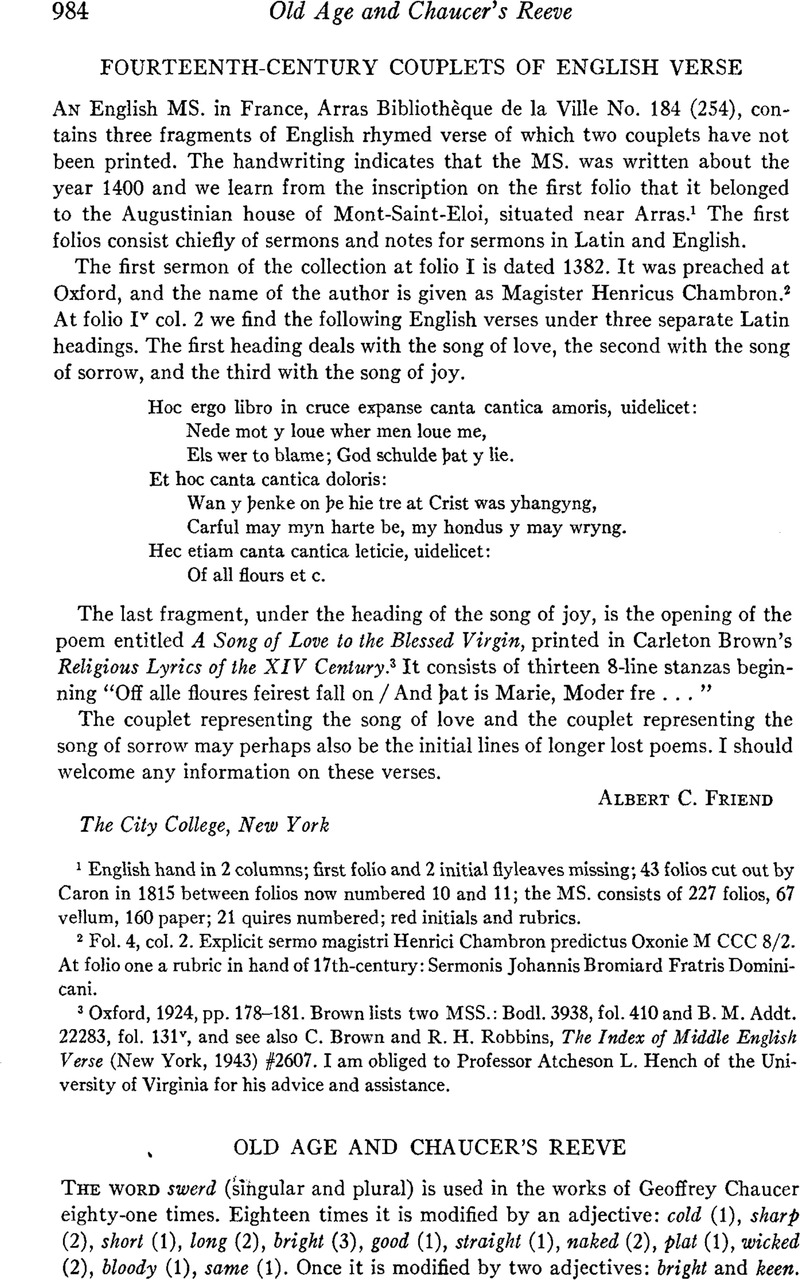No CrossRef data available.
Published online by Cambridge University Press: 02 December 2020

1 A Commentary on the General Prologue to The Canterbury Tales (New York, 1949), p. 253.
2 All lines from Chaucer are quoted from F. N. Robinson's The Complete Works of Geoffrey Chaucer (Cambridge, Mass., 1933).
3 Robinson, p. 978, gives 1393 as the supposed date of the Envoy.
4 “Old Age from Horace to Chaucer: Some Literary Affinities and Adventures of an Idea,” Speculum, ix (1934), 273.
5 Costume and Fashion (London, 1927), ii, 166, 256.
6 “The Quarrels of the Canterbury Pilgrims,” JEGP, xiv (1915), 268-269.
7 ME hoppen (from AS hoppian) is usually glossed ‘to dance.’ John R. Clark Hall in his Concise Anglo-Saxon Dictionary (Cambridge, 1931) gives also to AS hoppian the meaning ‘to limp’ and refers to a passage in Aelfric, which is “Sum man gesette his þeowan man on fetera. He saet lange on þam bendum oþ þaet he bestael ut mid his stafe hoppende” (Hml. S. 21, 417).
8 Washington Irving says: “For a long while he [Rip Van Winkle] used to console himself, when driven from home, by frequenting a kind of perpetual club of the sages, philosophers, and other idle personages of the village which held its sessions on a bench before a small inn, designated by a rubicund portrait of his majesty George the Third. Here they used to sit in the shade, of a long lazy summer's day, talking listlessly over village gossip, or telling endless sleeply stories about nothing …
“The opinions of this junto were completely controlled by Nicholas Vedder, a patriarch of the village, and landlord of the inn, at the door of which he took his seat from morning till night, just moving sufficiently to avoid the sun, and keep in the shade of a large tree; so that the neighbors could tell the hour by his movements as accurately as by a sun dial.” —“Rip Van Winkle” in A College Book of American Literature, ed. Ellis, Pound, and Spohn (New York, 1939), i, 493.
9 De senectute, ed. W. A. Falconer (London, 1930), pp. 68 and 70.
10 I am indebted to Professor George R. Coffman for several valuable suggestions, including a suggestion that I consult Ernest Robert Curtius, Europäische Literatur und lateinisches Mittelalter (1948). This suggestion I have followed and, as a result, have increased my understanding of commonplaces about old age.